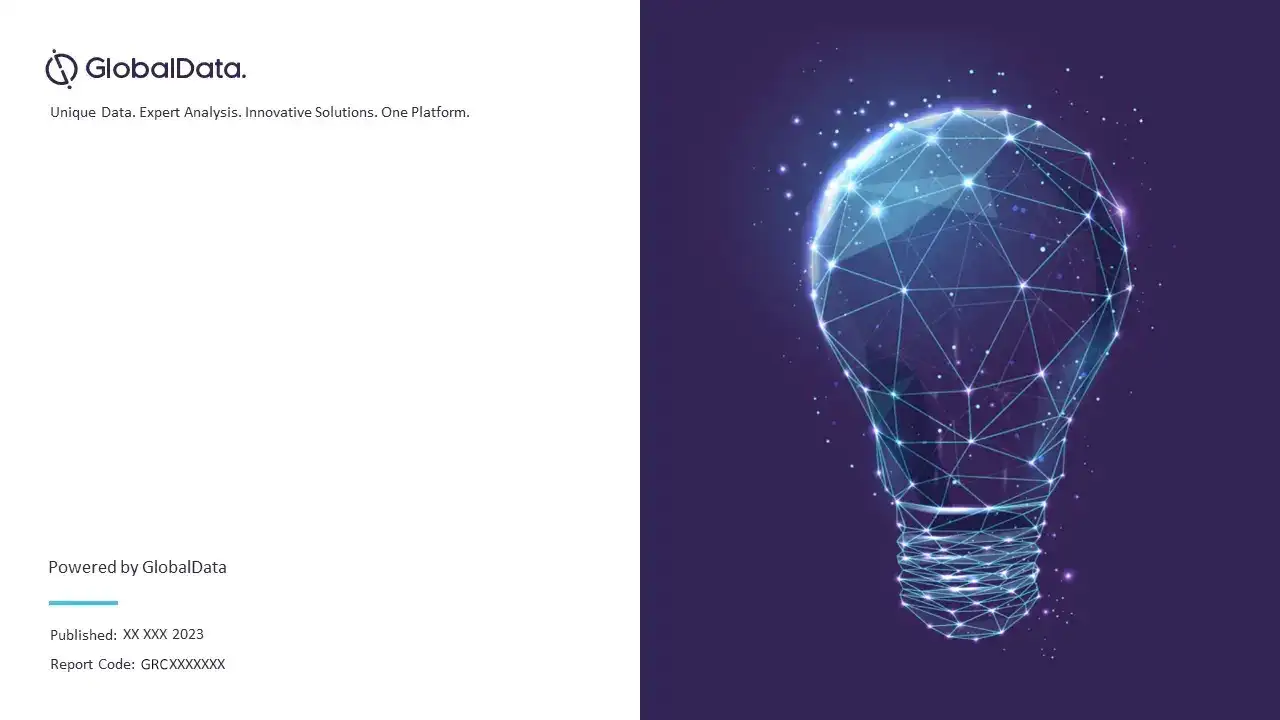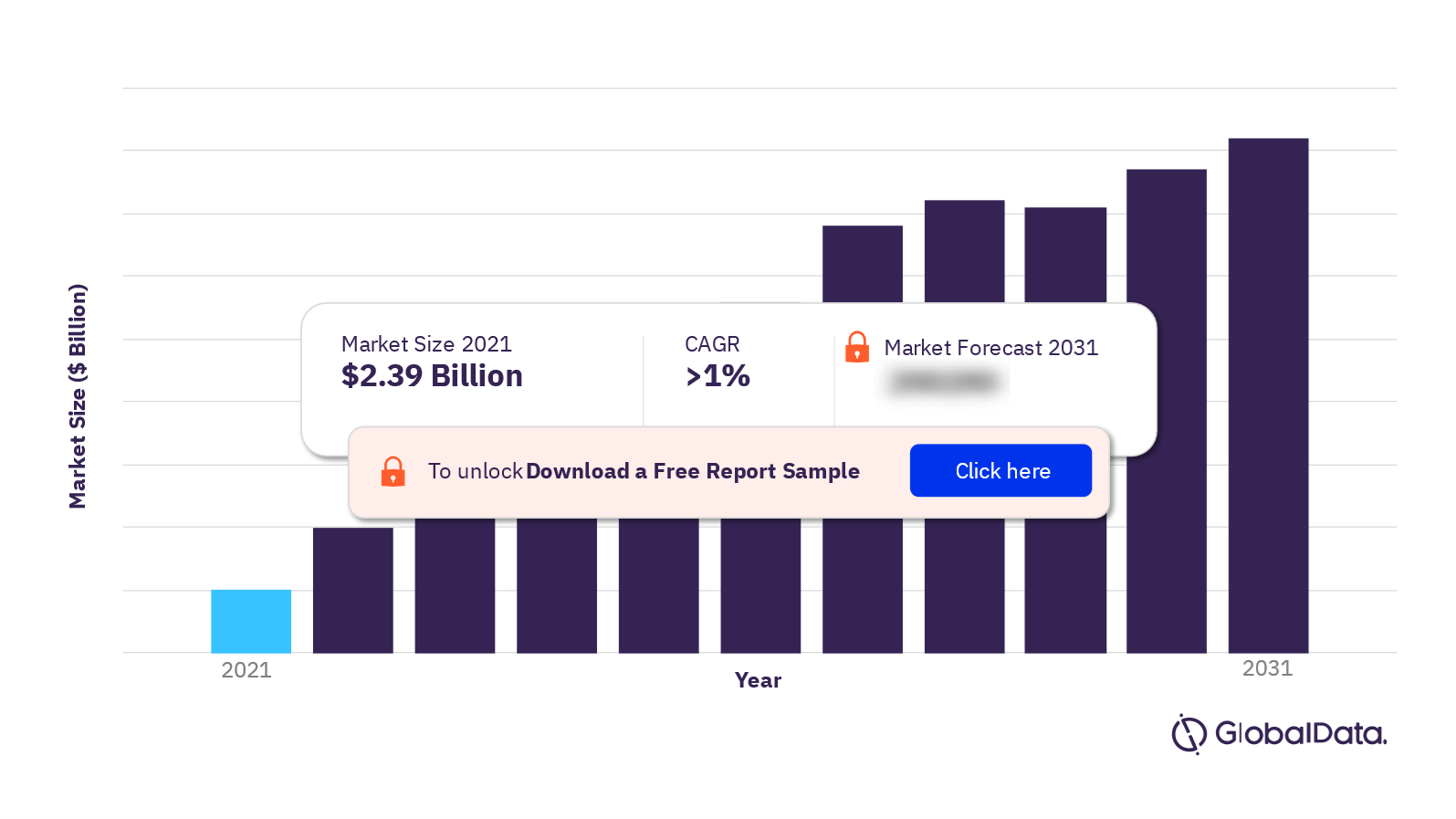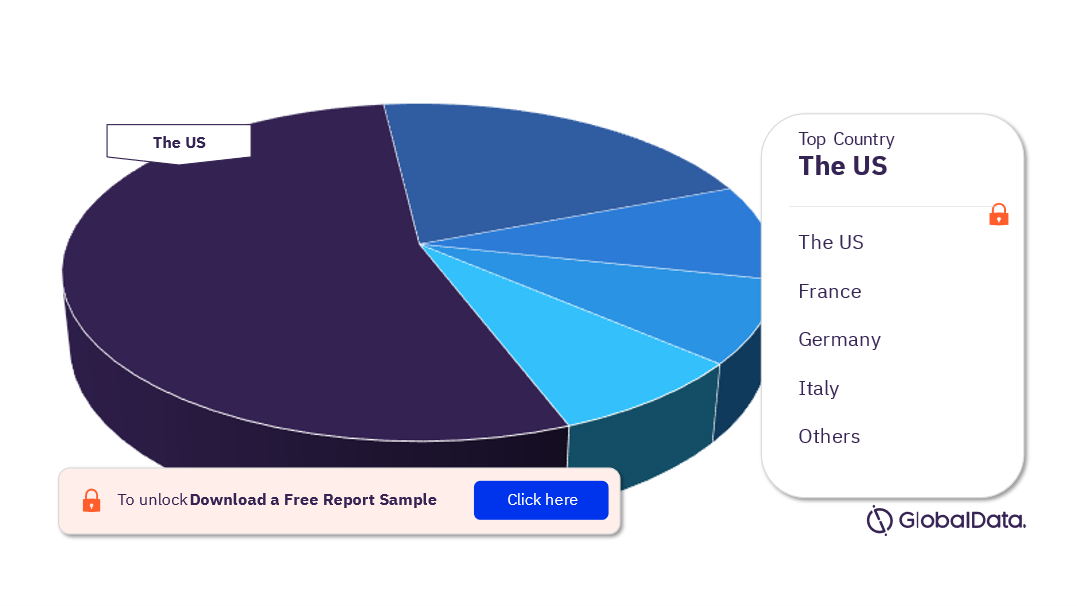Myelofibrosis Market Size, Drug Analysis, Epidemiology, Disease Management, Pipeline Assessment, Unmet Needs and Forecast to 2031
Powered by ![]()
All the vital news, analysis, and commentary curated by our industry experts.
Myelofibrosis Market Overview
The Myelofibrosis market size across the 8MM was valued at $2.39 billion in 2021 and is expected to achieve a CAGR of more than 1% during 2021-2031. Peak-year sales are set to be reached in 2027, driven by the approvals of several promising late-stage pipeline agents and the continued clinical dominance of Jakafi/Jakavi (ruxolitinib).
Incyte was the first company to capitalize on the clinical and commercial potential of the MF market with the landmark approval of its blockbuster JAK inhibitor Jakafi/Jakavi directly into the first-line setting in 2011, making it the first targeted therapy available specifically to treat MF. It also was, and still remains, the most effective therapy available to treat MF by far. Incyte markets Jakafi in the US and Novartis markets Jakavi in the five major European markets (5EU) (France, Germany, Italy, Spain, and UK), Japan, and China.
In 2028, Jakafi/Jakavi is set to come off-patent in the US, which will greatly decrease its total market sales. However, the loss of total market sales will be somewhat recuperated in 2028 and beyond by the additional growth in the market value of other pipelines Janus kinase (JAK) inhibitors and targeted therapies, with sales of these agents being driven by ameliorating critical unmet needs within the Myelofibrosis treatment paradigm.
Myelofibrosis Market Outlook, 2021-2031 ($ Billion)
To gain more information about the Myelofibrosis market forecast, download a free report sample
Myelofibrosis Market Drivers
The Myelofibrosis market in the 8MM is expected to be driven by the approvals of late-stage pipeline agents, including novel JAK inhibitors and targeted therapies over the forecast period. It will partially meet critical unmet clinical needs. In addition, decreased reliance on generic immunomodulatory agents, androgens, and erythropoietin-stimulating agents will also propel the market growth in the coming years.
Increased utilization of novel combination regimens with premium-priced agents is also expected to drive the growth of the market in the forecast period.
Myelofibrosis Market Segmentation by Countries
Some of the major countries in the Myelofibrosis market are the US, France, Germany, Italy, Spain, the UK, Japan, and China. The US led the Myelofibrosis market in 2021 in terms of the value of sales.
Incyte markets Jakafi in the US and Novartis markets Jakavi in the five major European markets (5EU) (France, Germany, Italy, Spain, and UK), Japan, and China. Jakafi/Jakavi sales are forecast to diminish slowly to moderately until 2028 when it comes off-patent in the US, with sales being eroded by novel pipeline agents capturing patient share in the second-line setting.
Myelofibrosis Market Analysis by Countries, 2021 (%)
For more country insights into the Myelofibrosis market, download a free report sample
Myelofibrosis Market Segmentation by Class
The World Health Organization (WHO) classification system for tumors of the hematopoietic and lymphoid tissues classifies Myelofibrosis as a JAK2/CALR/MPL mutation-associated MPN negative for BCR-ABL1 oncogene or Philadelphia chromosome. Under this classification, PMyelofibrosis is subdivided into prefibrotic PMyelofibrosis and overt PMyelofibrosis, primarily differentiated by the histological grading of fibrosis. There are several Myelofibrosis scoring systems used to stratify patient risk and estimate prognosis.
The National Comprehensive Cancer Network recommends the Mutation and Karyotype-Enhanced International Prognosis Scoring System (MIPSS70) Plus Version 2, which encompasses a broad range of symptoms and incorporates genetic risk factors.
For more class insights into the Myelofibrosis market, download a free report sample
Myelofibrosis Market - Competitive Landscape
Some of the leading players in the UC market are Bristol Myers Squib, Novartis, GSK, Incyte, Zelgen, AbbVie, and CTi among others. Several late-stage pipeline agents are geared towards partially meeting these unmet needs, such as GSK’s momelotinib, a novel JAK inhibitor that targets the second line of therapy and has demonstrated promising anemia efficacy, and CTI BioPharma’s JAK inhibitor Vonjo (pelabresib), which is now available in the US under FDA accelerated approval for patients with thrombocytopenia who cannot receive conventional JAK inhibitors.
Scope
This report provides:
- Overview of Myelofibrosis, including epidemiology, symptoms, diagnosis, and disease management.
- Annualized Myelofibrosis therapeutics market revenue, cost of therapy per patient, and treatment usage patterns forecast from 2021 to 2031.
- Key topics covered include strategic competitor assessment, market characterization, unmet needs, clinical trial mapping, and implications of these factors for the Myelofibrosis market.
- Pipeline analysis: comprehensive data assessing emerging trends and mechanisms of action under development for Myelofibrosis treatment. The most promising candidates in Phase III and Phase IIb development are profiled.
- Analysis of the current and future market competition in the global Myelofibrosis therapeutics market. Insightful review of the key industry drivers, restraints, and challenges. Each trend is independently researched to provide a qualitative analysis of its implications.
Key Highlights
Report deliverables include a PowerPoint report and Excel-based forecast model
Forecasts includes the 8MM
Forecasts covers from 2021-2031
GlobalData valued the myelofibrosis market in the 8MM at $2.39 billion and expects the market to increase to $2.89 billion by 2031
Incyte, GSK and CTI BioPharma are expected to take market-leading position in 2031
A moderate level of unmet need will remain for most myelofibrosis patient populations during the forecast period
The late-stage pipeline in myelofibrosis is robust and is likely to provide significant clinical benefit to many myelofibrosis patient populations, with fierce competition expected
Reasons to Buy
The report will enable you to:
- Develop and design your in-licensing and out-licensing strategies through a review of pipeline products and technologies, and by identifying the companies with the most robust pipeline.
- Develop business strategies by understanding the trends shaping and driving the global Myelofibrosis therapeutics market.
- Drive revenues by understanding the key trends, innovative products and technologies, market segments, and companies likely to impact the global Myelofibrosis therapeutics market in the future.
- Formulate effective sales and marketing strategies by understanding the competitive landscape and by analyzing the performance of various competitors.
- Identify emerging players with potentially strong product portfolios and create effective counterstrategies to gain a competitive advantage.
- Organize your sales and marketing efforts by identifying the market categories and segments that present maximum opportunities for consolidations, investments, and strategic partnerships
Acceleron Pharma
Bristol Myers Squibb
Constellation Pharmaceuticals
CTI BioPharma
Geron
GSK
Hangzhou Bangshun Pharmaceutical
Huadong Medicine
Impact Biomedicines
Incyte
Kartos Therapeutics
Morphosys
Novartis
Sierra Oncology
Suzhou Zelgen Pharmaceuticals
Table of Contents
Table
Figures
Frequently asked questions
-
What was the size of the Myelofibrosis market across the 8MM in 2021?
The Myelofibrosis market size across the 8MM was valued at $2.39 billion in 2021.
-
What is the growth rate of the Myelofibrosis market?
The Myelofibrosis market is expected to achieve a CAGR of more than 1% during 2021-2031.
-
Which are the key drivers supporting the growth of the Myelofibrosis market?
The major driver of growth in the Myelofibrosis market across the 8MM over the forecast period will be the approvals of late-stage pipeline agents, including novel JAK inhibitors and targeted therapies, which will partially meet critical unmet clinical needs.
-
Which country led the US Myelofibrosis market?
The US led the Myelofibrosis market in 2021 in terms of the value of sales.
-
Who are the key players operating in the UC market?
Some of the leading players in the UC market are Bristol Myers Squib, Novartis, GSK, Incyte, Zelgen, AbbVie, and CTi among others.
Get in touch to find out about multi-purchase discounts
reportstore@globaldata.com
Tel +44 20 7947 2745
Every customer’s requirement is unique. With over 220,000 construction projects tracked, we can create a tailored dataset for you based on the types of projects you are looking for. Please get in touch with your specific requirements and we can send you a quote.
Related reports
View more Myelofibrosis reports









